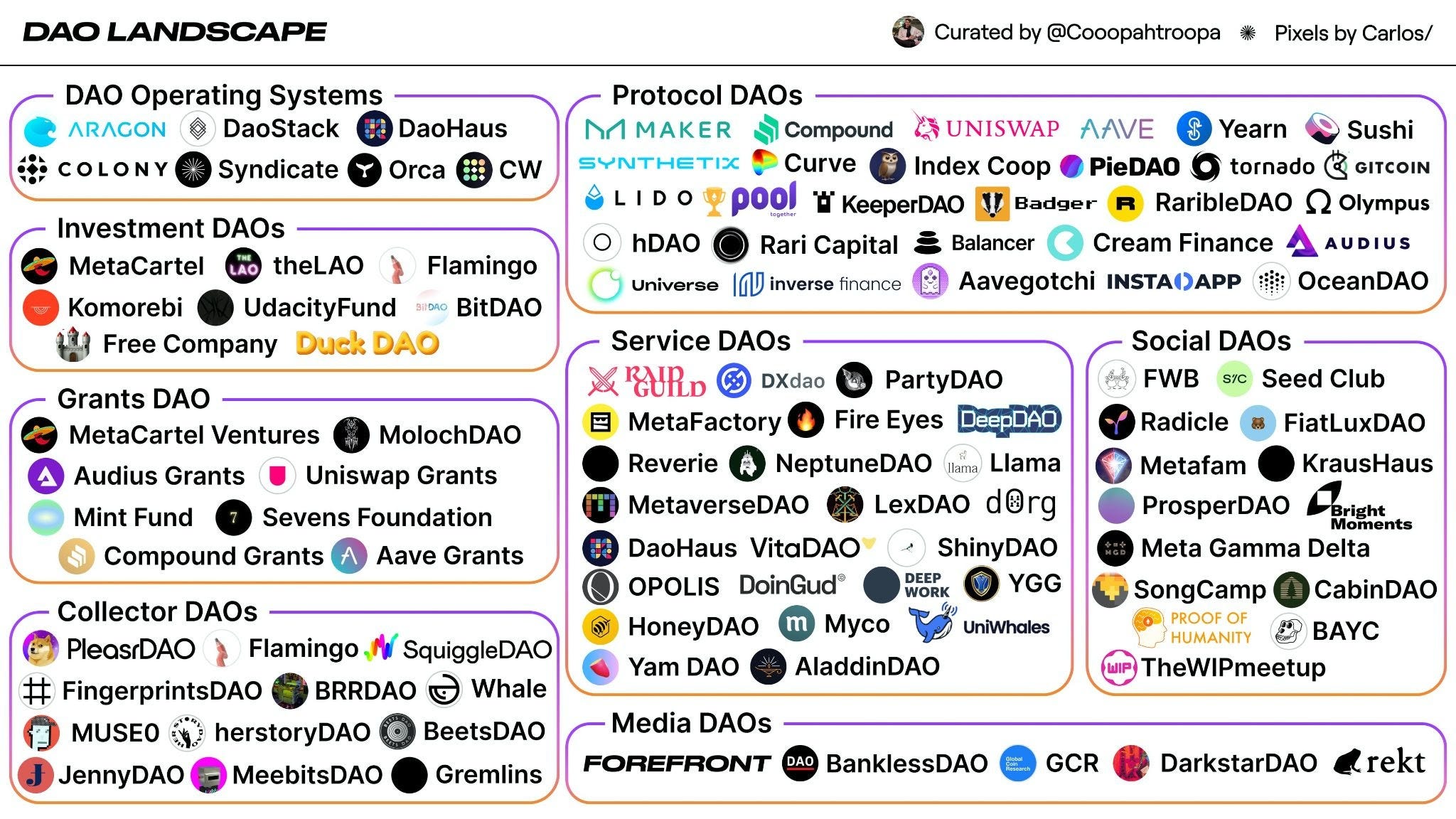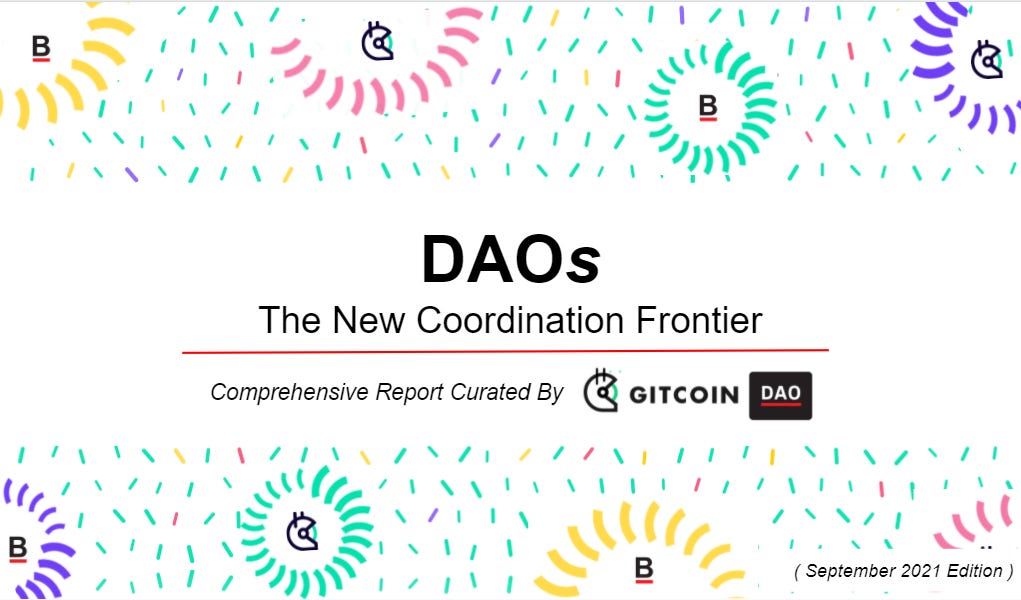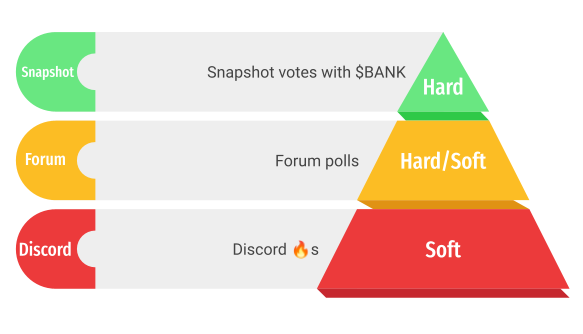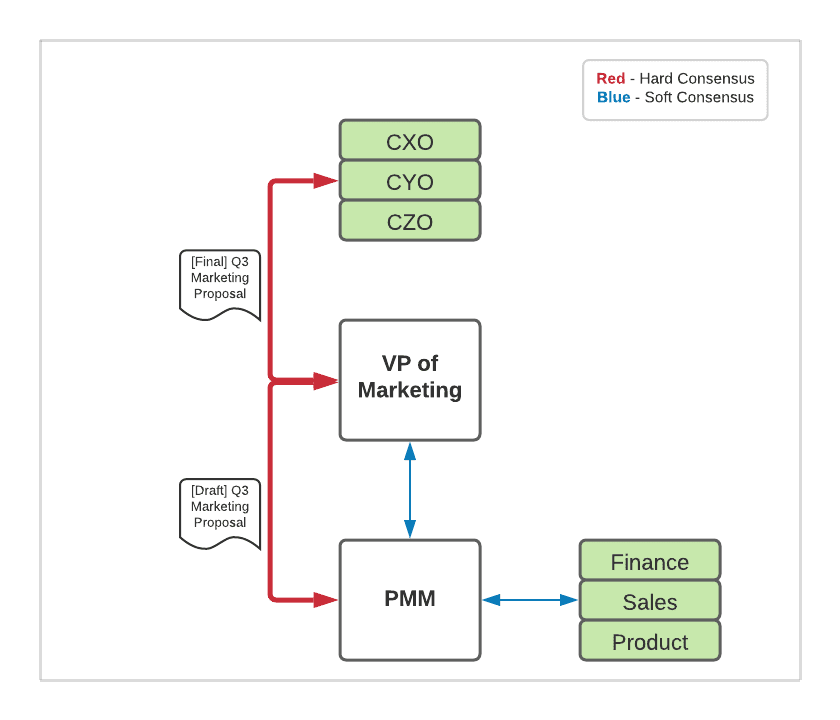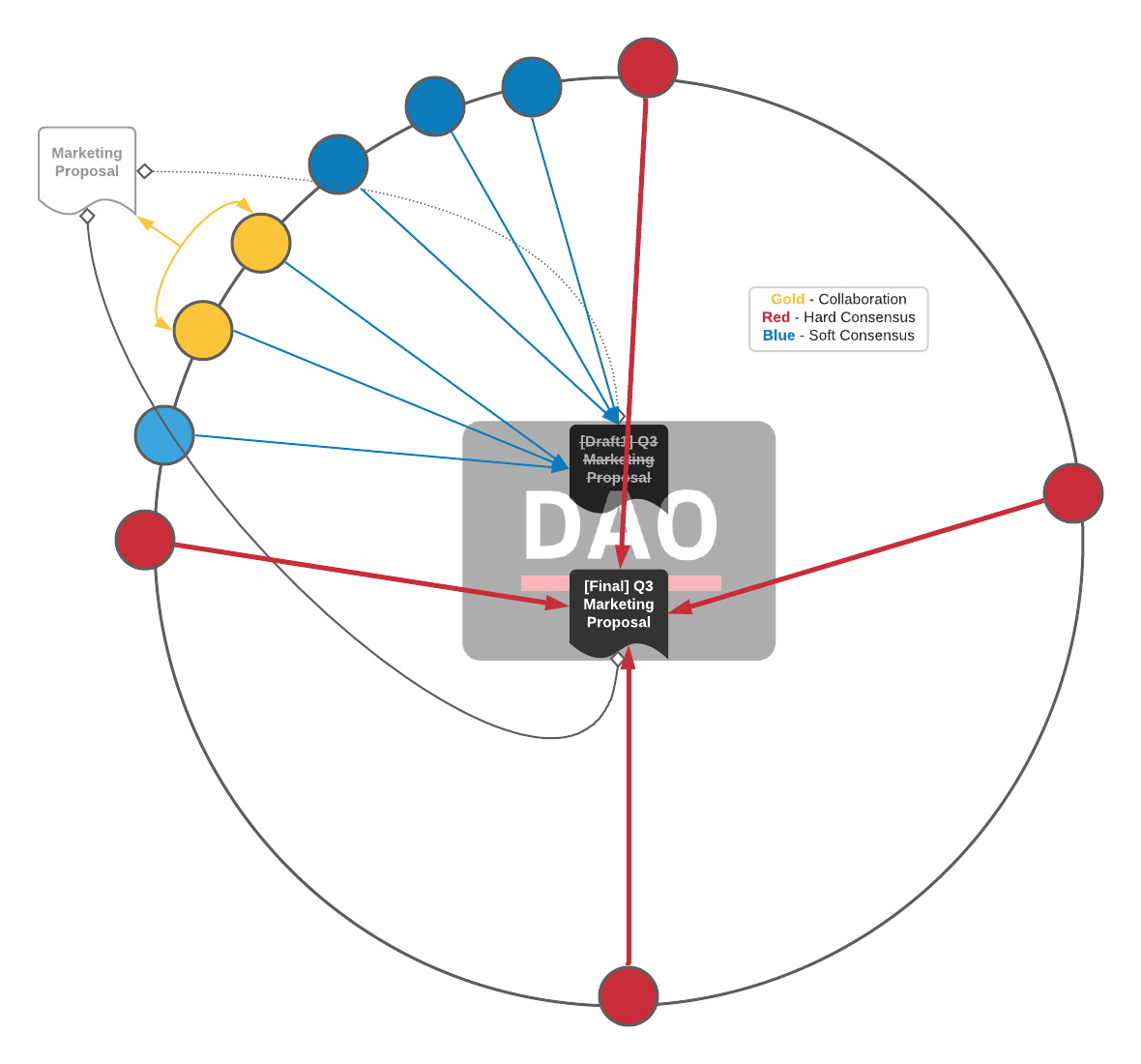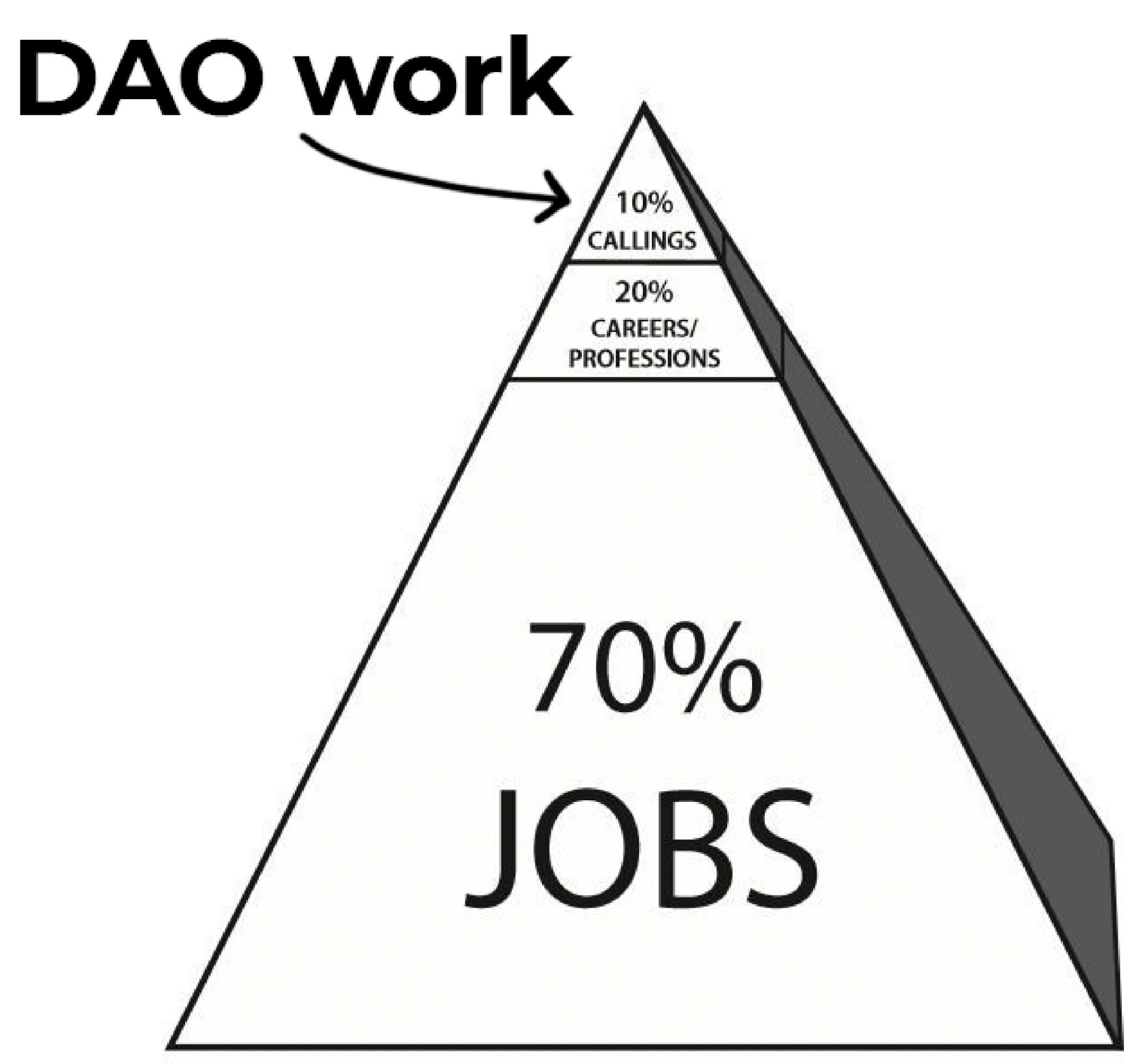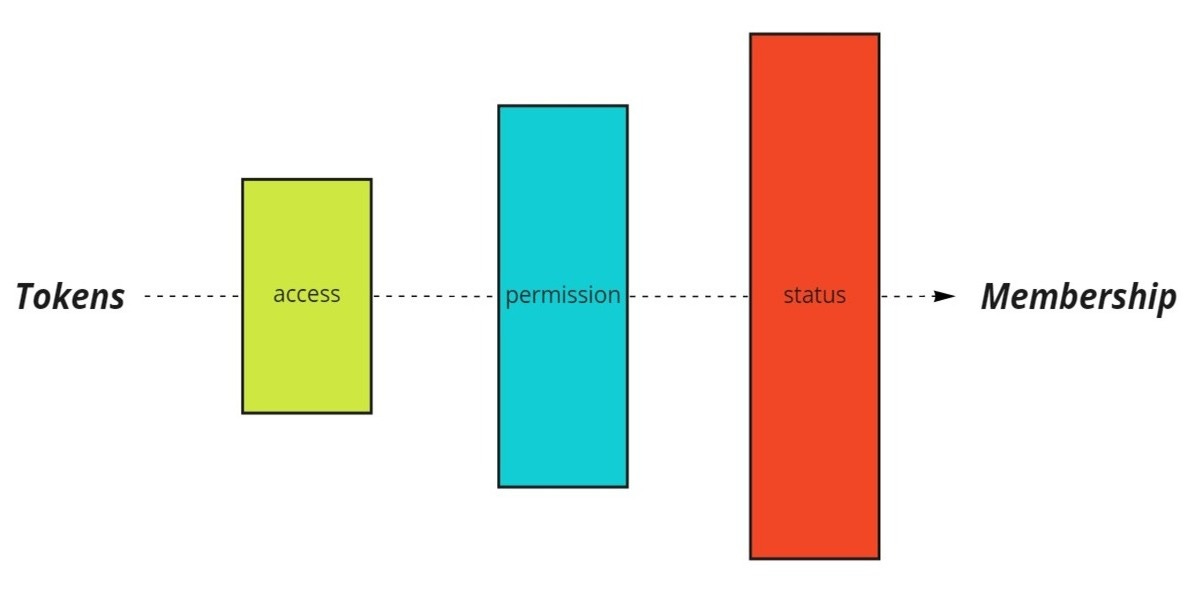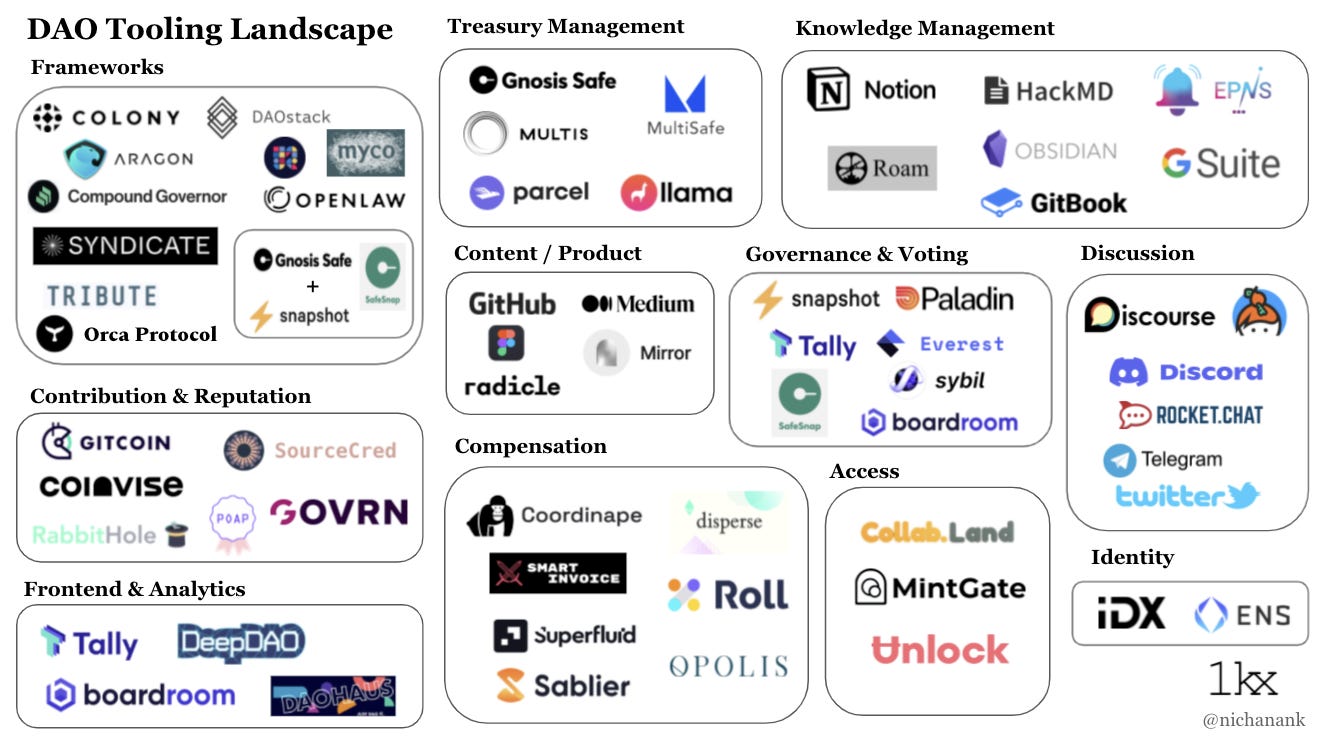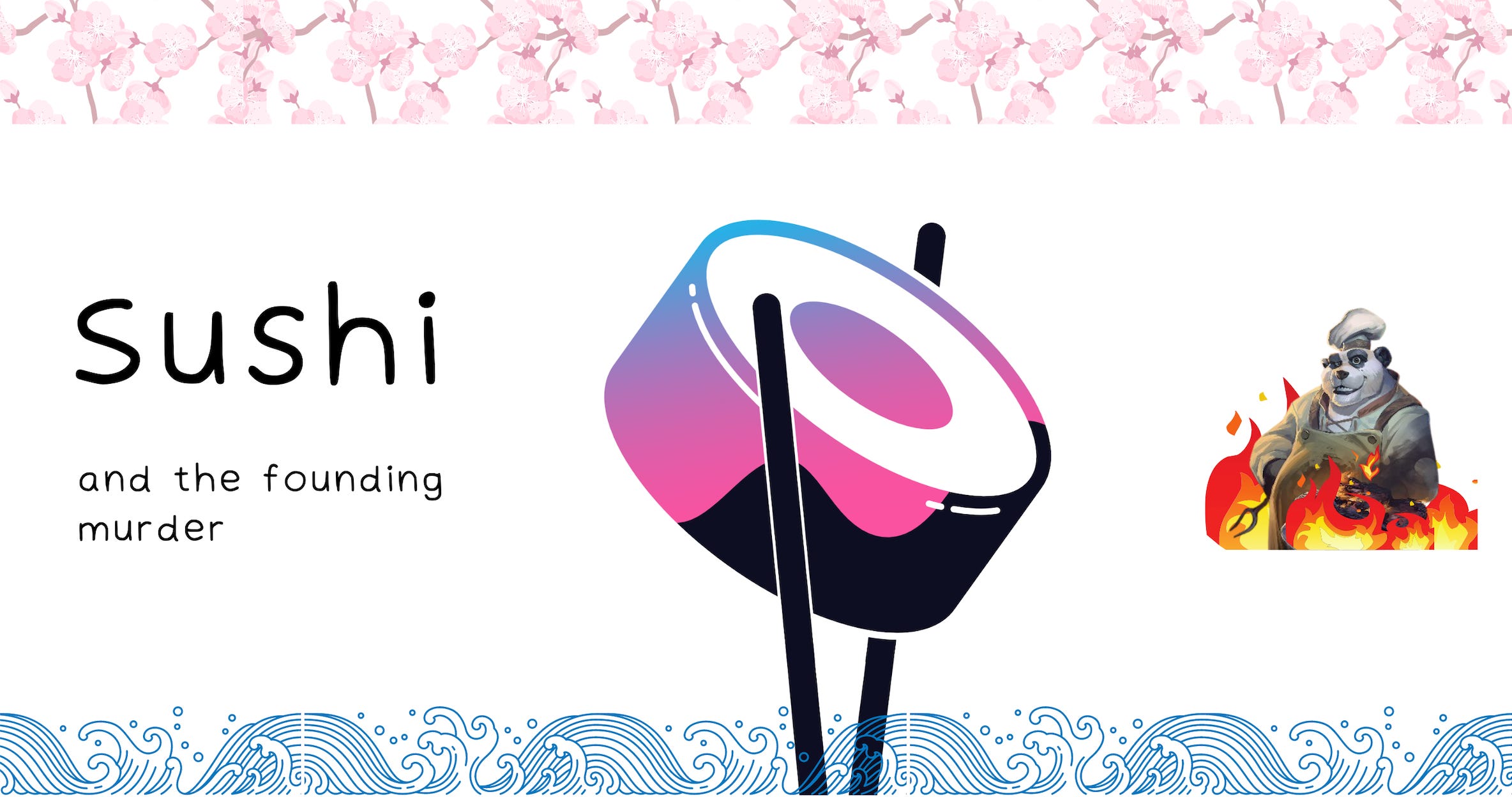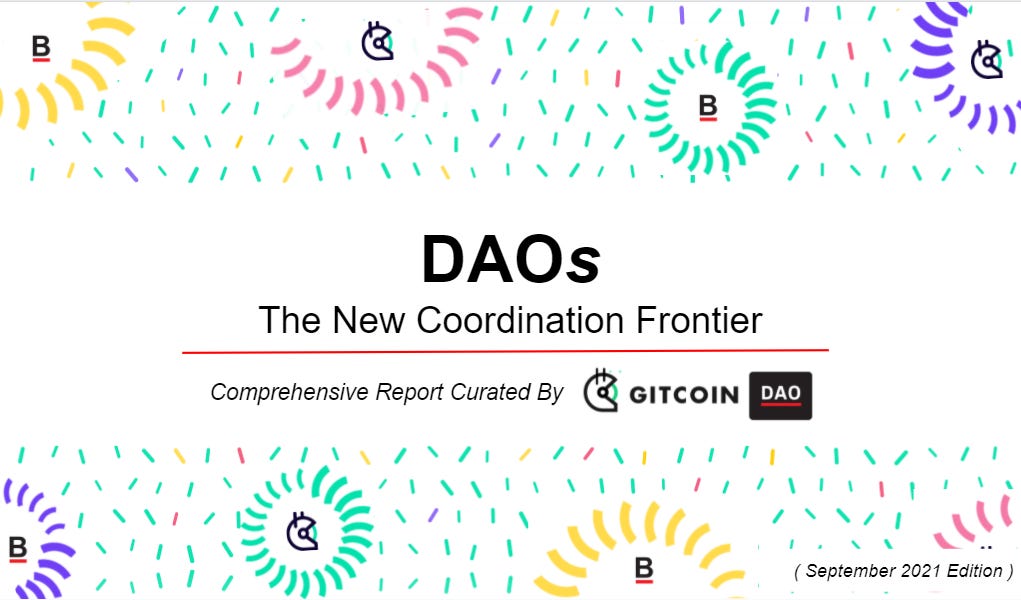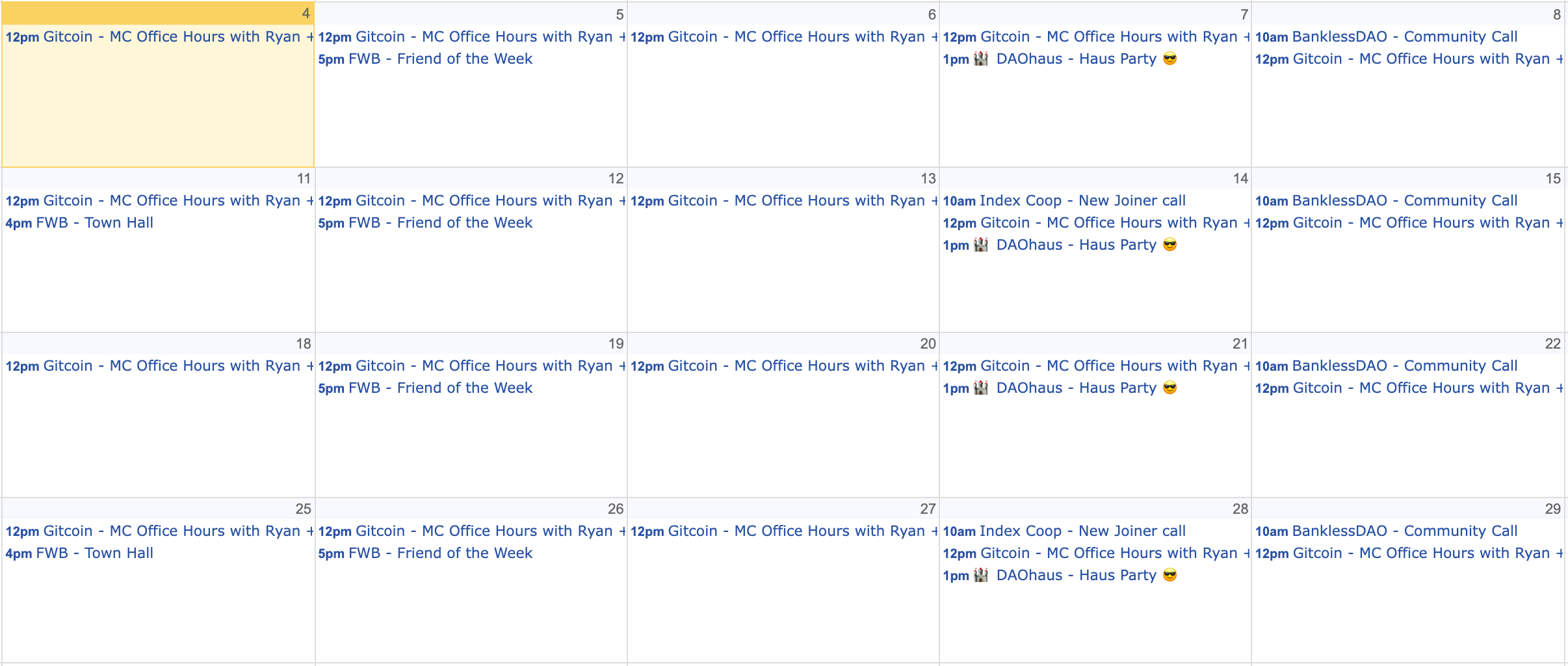Bankless DAO - State of the DAOs #0 | Oct 6th, 2021
State of the DAOs #0 | Oct 6th, 2021You're reading State of the DAOs, the high-signal low-noise newsletter for understanding DAOs.State of the DAOs curates high-quality content from the DAO ecosystem and delivers it to you in an easily accessible form. You might be curious about joining a DAO, have already jumped in but feel overwhelmed, or you might even be an active, engaged member of multiple DAOs. Wherever you are on your journey, State of the DAOs cuts through the noise and is your TL;DR for getting started, leveling up, and staying up to date on the world of DAOs. Author: BanklessDAO Writers Guild (scottyk, frogmonkee, siddhearta, William M Peaster) This is the official newsletter of the Bankless DAO. If you were a premium member of the Bankless Newsletter as of May 1, 2021 you have been subscribed to this newsletter at launch. To unsubscribe edit your settings here. WTF are DAOs?
Decentralized Autonomous Organizations (DAOs) are digitally native communities that center around a shared mission. DAOs are:
Accordingly, DAOs are a new internet-native way for communities to efficiently and securely coordinate funds and labor. DAOs are simply units of coordination. Any group of individuals can create a DAO to execute their mission with minimal barriers to entry, whether that be to buy and manage a basketball team, create a decentralized Blackrock, or offer services to other DAOs. Emboldened by a growing sense of collective empowerment, the DAO ecosystem has been surging with activity lately as more and more people discover how these orgs are pointing to new horizons of work in the 21st century. As a testament to this surge, today DAO treasuries bear ~$7B worth of assets under management (AUM) and somewhere in the ballpark of 1M members, respectively speaking. That’s on the heels of the DAO ecosystem having just turned 5 years old! “DAOs are here today. DAOs are a worldwide trend & an emerging part of the Ethereum ecosystem. It’s happening! DAOs are already enabling dense P2P networks of value exchange & participation.” — DAOs: The New Coordination Frontier The crypto industry as a whole is still a ways off from DAOs actualizing their full potential. The original conception of a DAO was code at the center, and humans at the periphery. A DAO is a smart-contract or system of smart-contracts on Ethereum that are autonomous because they have no human dependencies; they operate as autonomous software on Ethereum. Projects like Uniswap and Compound that start as autonomous protocols and turn into DAOs embody this ethos, but most DAOs lack sufficient tooling to move their decision-making and execution from the social layer to on-chain. But that hasn’t stopped the massive wave of DAOs that embed the values of decentralization and permissionless execution at the social layer. How DAOs Operate 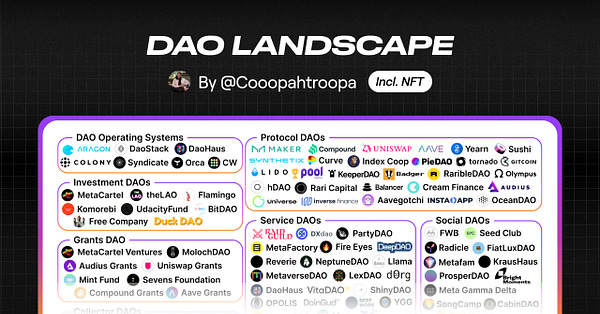 In traditional organizations, decision-making happens through top-down hierarchy, with a small group of executives dictating each macro-level decision. DAOs operate through a bottoms-up flow, where decisions are made through community consensus and rely on the perspectives of peers. This does not mean that every person is necessarily involved with every single decision, but rather that decision-making happens within concentric rings, starting from “soft consensus” and moving towards “hard consensus.”
DAOs need a combination of soft and hard consensus unless they want to get bogged with bureaucracy (only hard) or divisiveness (only soft). In fact, consensus mechanisms can have both “softness” and “hardness” both. DAO vs Traditional OrganizationsIn a traditional organization, ABC Incorporated develops a marketing plan. It was drafted by ABC Inc.’s Product Marketing Manager with some input from other departments. It then goes to the VP of Marketing for edits and finally up to the executive suite for a final approval. Upon approval from the higher ups, the VP will coordinate with his/her team to execute on the plan. XYZ DAO also has a marketing plan. It was voluntarily drafted by two people, one with a couple months of product marketing experience and the other with 25 years in marketing. It was then proposed on a public forum with a dedicated Discord channel for discussions. At this stage, members with a variety of backgrounds, some in marketing and some not, all participated with criticisms, suggestions, dissent, and support. The final step is to redraft the original proposal until there is majority support before moving on to a snapshot for tokenholders to vote on. 🔑Insight: Same outcome, completely different process. One that empowers individual members to act with the support of their peers. DAOs and the Future of WorkCatalyzed by COVID-19, the labor markets have been subject to what economists are calling The Great Resignation. The main takeaway (aside from retail workers being treated like 💩 - again) is that the change to remote work has changed how employees view when, where, and why they work. Despite the stress, the pandemic put on the average working-class individual, the repeated furloughs, remote work, and quarantine requirements gave people the chance to live their lives. To spend time with family, cook new and exciting meals, go on long walks, and pick up new hobbies. The pandemic reminded everyone that there was a world outside of work. And in the digital age of work, is it any surprise that people want their lifestyle to determine their work, not their work to determine their lifestyle? DAOs represent this shift in thinking. People in DAOs work at their own leisure, whether that’s five hours a week or fifty, at one DAO or three. In fact, the majority of contributors within a DAO are part-time, which inverts the usual model found in traditional organizations. And guess what? Shit still gets done. Need more money? Work more. Need more time? Work less. It doesn’t stop there. The future of work doesn’t mean only working your own hours, but it also reflects the meaning behind that work. DAOs are digitally native communities that center around a shared mission. That mission isn’t marketing fluff. Unlike incorporated companies that have financial obligations to shareholders, DAOs can activate around a more diverse set of goals that are not necessarily financially motivated. Combine meaningful missions with flexible working hours and people find themselves wanting to contribute, rather than being compelled to contribute. How to Get StartedA helpful mental model to use is that while startups source talent, by way of job boards, interviews, and a robust hiring pipeline, DAOs crowdsource talent from their community. People self-organize into niches based on what excites them and collectively begin to explore those ideas collectively. It is the DAO’s responsibility to enable new entrants to contribute and execute their ideas. In some cases, DAOs are gated by token requirements, but most are open for anyone to join. In most cases, the entry point is usually a Discord server, where 99% of activity and conversation occur. From there, each DAO has its own onboarding flows. (This is a problem space for most DAOs. Onboarding is often chaotic, but we’re starting to see best practices emerge.) For example:
An easy way to plug into a DAO is to attend their regular community calls or other beginner-friendly meetings. Feel free to join Bankless DAO’s weekly community call every Friday at 11am EDT or peek at the Beginner-Friendly Calendar below! Actions steps📖 Read The Ultimate DAO Report by Bankless DAO x Gitcoin DAO 🙋 Join the Bankless DAO Discord to see how you can help us help the world go bankless! 🎧 Listen along to any regular DAO calls that may interest you DAOs at a Glance
Composable Membership and its Role in Generating Social CapitalAuthor: Andrew Hong Exploring ways that communities move away from simple token-based membership, Andrew Hong identifies three key factors in creating composable memberships with the goal of creating long-term social capital:
In the near future, composable memberships will not only shape communities, but also the ecosystems and platforms those communities operate in as well. Organization Legos: The State of DAO ToolingAuthor: Nichanan Kesonpat This comprehensive article by Nichanan Kesonpat presents a deep dive into organizational design and the growing suite of web3 native tools available to enable large-scale human coordination. In it, she presents three main challenges all DAOs face, whether they are protocol, investment, community, or even NFT DAOs:
In order to meet these challenges, she then explores each category of tools available today, including— contribution management, compensation, decision making, treasury, analytics, and DAO frameworks. Sushi and the Founding MurderAuthor: Mario Gabriele The fascinating story behind SushiSwap. Part manhunt, part trial by media, and part murder, the full saga covers:
DAOs: The New Coordination FrontierAuthors: Kevin Owocki, frogmonkee, paulapivat A first of its kind, GitcoinDAO and BanklessDAO partnered together to create this comprehensive survey of people who work for DAOs in order to help us understand how DAOs can coordinate better for long-term strategy. Here are some of the key takeaways:
"Imagine the ultimate marriage of technology, community, capital, ownership and purpose. That is a DAO." - @nanexcool Ecosystem Takes
DAOs May Be the Future of Work but Don’t Bet on Them Being the Next Big Asset ClassAuthor: Andrew Thurman 🔑 Insights:
DAOs Have a Long Way to GoAuthor: Daniel Roberts 🔑 Insights:
Tokenomics - Three things Creators need to know before making a Social Token for their communityAuthor: Eliot Couvat 🔑 Insights:
On Nathan Schneider on the limits of cryptoeconomicsAuthor: Vitalik Buterin 🔑 Insights:
Get Plugged In🗓️ State of the DAOs - Beginner Friendly Events
🛩️ Event Highlights
💻 Job Opportunities
DAO Spotlight: Bankless DAOBanklessDAO is a decentralized autonomous organization that acts as a steward of the Bankless movement by creating user-friendly onramps for people to discover next-generation financial technologies through education, media, and culture. Going Bankless means adopting blockchain-based technologies that enable wealth creation without relying on the traditional banking system. BanklessDAO envisions a world where those with an internet connection can have access to the tools needed to achieve financial independence. Building tools, resources, and community. Creating written media, podcasts, and educational resources. Empowering individuals and teams to do their best work. Connecting diverse talent, perspectives, and teams in a collaborative environment. Driving crypto culture and adoption. Join the movement. Join BanklessDAO If you liked this post from Bankless DAO, why not share it? |
Older messages
Decentralized Arts #7 | October 4
Monday, October 4, 2021
Bankless DAO Weekly NFT and Cryptoart Newsletter
Decentralized Arts #6 | September 27
Saturday, October 2, 2021
BanklessDAO Weekly NFT and Cryptoart Newsletter
Bankless DAO Weekly Rollup #22 | October 1
Saturday, October 2, 2021
Catch up with what happened this week in the BanklessDAO.
You Might Also Like
Central African Republic’s CAR memecoin raises scrutiny
Friday, February 14, 2025
Allegations of deepfake videos and opaque token distribution cast doubts on CAR's ambitious memecoin project. ͏ ͏ ͏ ͏ ͏ ͏ ͏ ͏ ͏ ͏ ͏ ͏ ͏ ͏ ͏ ͏ ͏ ͏ ͏ ͏ ͏ ͏ ͏ ͏ ͏ ͏ ͏ ͏ ͏ ͏ ͏ ͏ ͏ ͏ ͏ ͏ ͏ ͏ ͏ ͏ ͏ ͏ ͏ ͏
January CEX Data Report: Significant Declines in Trading Volume Across Major CEXs, Spot Down 25%, Derivatives Down…
Friday, February 14, 2025
According to data collected by the WuBlockchain team, spot trading volume on major central exchanges in January 2025 decreased by 25% compared to December 2024. ͏ ͏ ͏ ͏ ͏ ͏ ͏ ͏ ͏ ͏ ͏ ͏ ͏ ͏ ͏ ͏ ͏ ͏ ͏ ͏
Previewing Coinbase Q4 2024 Earnings
Friday, February 14, 2025
Estimating Coinbase's Transaction and Subscriptions & Services Revenue in Q4 2024 ͏ ͏ ͏ ͏ ͏ ͏ ͏ ͏ ͏ ͏ ͏ ͏ ͏ ͏ ͏ ͏ ͏ ͏ ͏ ͏ ͏ ͏ ͏ ͏ ͏ ͏ ͏ ͏ ͏ ͏ ͏ ͏ ͏ ͏ ͏ ͏ ͏ ͏ ͏ ͏ ͏ ͏ ͏ ͏ ͏ ͏ ͏ ͏ ͏ ͏ ͏ ͏ ͏ ͏ ͏ ͏
ADA outperforms Bitcoin as Grayscale seeks approval for first US Cardano ETF in SEC filing
Friday, February 14, 2025
Grayscale's Cardano ETF filing could reshape ADA's market position amid regulatory uncertainty ͏ ͏ ͏ ͏ ͏ ͏ ͏ ͏ ͏ ͏ ͏ ͏ ͏ ͏ ͏ ͏ ͏ ͏ ͏ ͏ ͏ ͏ ͏ ͏ ͏ ͏ ͏ ͏ ͏ ͏ ͏ ͏ ͏ ͏ ͏ ͏ ͏ ͏ ͏ ͏ ͏ ͏ ͏ ͏ ͏ ͏ ͏ ͏ ͏
AI project trading tips: investment targets and position management
Friday, February 14, 2025
This interview delves into the investment trends, market landscape, and future opportunities within AI Agent projects. ͏ ͏ ͏ ͏ ͏ ͏ ͏ ͏ ͏ ͏ ͏ ͏ ͏ ͏ ͏ ͏ ͏ ͏ ͏ ͏ ͏ ͏ ͏ ͏ ͏ ͏ ͏ ͏ ͏ ͏ ͏ ͏ ͏ ͏ ͏ ͏ ͏ ͏ ͏ ͏ ͏
DeFi & L1L2 Weekly — 📈 Polymarket recorded a new high of 462.6k active users in Jan despite volume dip; Holesky a…
Friday, February 14, 2025
Polymarket recorded a new high of 462600 active users in January despite volume dip; Holesky and Sepolia testnets are scheduled to fork in Feb and Mar for Ethereum's Pectra upgrade. ͏ ͏ ͏ ͏ ͏ ͏ ͏ ͏
DeFi & L1L2 Weekly — 📈 Polymarket recorded a new high of 462.6k active users in Jan despite volume dip; Holesky a…
Friday, February 14, 2025
Polymarket recorded a new high of 462600 active users in January despite volume dip; Holesky and Sepolia testnets are scheduled to fork in Feb and Mar for Ethereum's Pectra upgrade. ͏ ͏ ͏ ͏ ͏ ͏ ͏ ͏
Donald Trump taps crypto advocate a16z’s Brian Quintenz for CFTC leadership
Friday, February 14, 2025
Industry leaders back Brian Quintenz's nomination, highlighting his past efforts at the CFTC and potential to revamp crypto oversight. ͏ ͏ ͏ ͏ ͏ ͏ ͏ ͏ ͏ ͏ ͏ ͏ ͏ ͏ ͏ ͏ ͏ ͏ ͏ ͏ ͏ ͏ ͏ ͏ ͏ ͏ ͏ ͏ ͏ ͏ ͏
⚡10 Tips to Make a Living Selling Info Products
Friday, February 14, 2025
PLUS: the best links, events, and jokes of the week → ͏ ͏ ͏ ͏ ͏ ͏ ͏ ͏ ͏ ͏ ͏ ͏ ͏ ͏ ͏ ͏ ͏ ͏ ͏ ͏ ͏ ͏ ͏ ͏ ͏ ͏ ͏ ͏ ͏ ͏ ͏ ͏ ͏ ͏ ͏ ͏ ͏ ͏ ͏ ͏ ͏ ͏ ͏ ͏ ͏ ͏ ͏ ͏ ͏ ͏ ͏ ͏ ͏ ͏ ͏ ͏ ͏ ͏ ͏ ͏ ͏ ͏ ͏ ͏ ͏ ͏ ͏ ͏ ͏ ͏ ͏ ͏ ͏ ͏
Interview with CryptoD: How He Made $17 Million Profit on TRUMP Coin
Friday, February 14, 2025
Author | WUblockchain, Foresight News ͏ ͏ ͏ ͏ ͏ ͏ ͏ ͏ ͏ ͏ ͏ ͏ ͏ ͏ ͏ ͏ ͏ ͏ ͏ ͏ ͏ ͏ ͏ ͏ ͏ ͏ ͏ ͏ ͏ ͏ ͏ ͏ ͏ ͏ ͏ ͏ ͏ ͏ ͏ ͏ ͏ ͏ ͏ ͏ ͏ ͏ ͏ ͏ ͏ ͏ ͏ ͏ ͏ ͏ ͏ ͏ ͏ ͏ ͏ ͏ ͏ ͏ ͏ ͏ ͏ ͏ ͏ ͏ ͏ ͏ ͏ ͏ ͏ ͏ ͏ ͏ ͏ ͏ ͏ ͏ ͏ ͏

